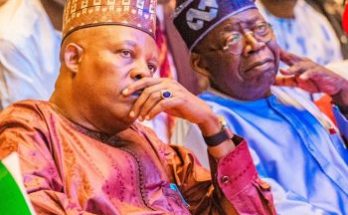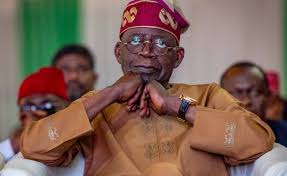Amid hopelessness and desperation, a kind of situation many Nigerians are facing today, no thanks to persistent but ferocious insecurity and economic adversity, it is preposterous to think deeply about how Nigeria can be made great. Yes, all great nations of today passed through similar challenges yesteryears; Nigeria cannot be different. USA, United Kingdom, China, and the rest, all had their most trying times, barbaric era and tumultuous insecurity challenges at one time or the other. Today, these countries are seen as the most awesome and lovely climes, which many are aspiring to visit. History has documented a chain of events on how each of these countries moved from the abyss of misery and squalor in years back to boisterous and prosperous nations today. So, how can we change the ugly trend to a flourishing one in Nigeria? Do we have the wherewithal and the resourcefulness to make Nigeria great? Yes, Nigeria has all the prerequisites of becoming a great nation in a matter of time. Nigeria is stupendously blessed with both human and natural resources making other countries grin with envy. Apart from oil and gas, the most dependable resources, Nigeria is richly endowed with a variety of other natural resources ranging from precious metals to various industrial stones.
Each of the 36 states including the Federal Capital Territory (FCT) in Nigeria has a minimum of three mineral resources in appreciable quantity waiting for exploitation. For instance, there are about 3 billion tons of iron ore deposits in Kogi, Niger states, and the FCT, 10 million tons of zinc/lead in Kano, Cross River states and Abuja. There are over 2 million tons of rock salts and over 3 billion tons of coal deposits in Plateau, Enugu, and Anambra states. A large quantity of gold is found in Zamfara, Sokoto, Oyo, Niger, Kwara, and Kebbi states, among others. If these mineral resources are tapped, the country could be Eldorado. In addition to mineral resources, there are other natural resources such as water and land resources. Across the nation, rainfall provides billions of liters of water annually in addition to several other billions of liters of water from River Niger. The river passes through the country and drains an average discharge of 5,589 m3/s into the Atlantic Ocean. River Niger with a length of 4,180 Km and a drainage basin area of 2.1 million Km2 is the third largest river in Africa after River Nile and Zaire.
This has made Nigeria the most endowed country with unlimited water resources available for development. Land resources are similarly in abundance in Nigeria. The country has 91 million hectares of arable land with merely 50 per cent utilization despite the quantum of water resources, soil fertility, favourable topography, and climates. However, these natural resources are mere potential and not yet transformed into the reality that can propel the development of the nation’s economy. Potential is like fertile land with adequate water for both crops and livestock productions left unattended and become vulnerable to infestation by dangerous reptiles. In any community or society, human resource is the driver of the transformation of potential into tangible reality. Nigeria is similarly blessed with quality human resources. The appointment of Dr. Ngozi Okonjo-Iweala is a typical example of the kind of human resource belonging to the nation.
What does Nigeria need to transform its potential? – Good governance and nationalism.Good governance and nationalism are the strong pillars for nation-building and excellent performance among the comity of nations.Good governance is an elusive objective that means different things to different people or organisations depending on what the intention is aimed at. Good governance centers on the responsibility of government and governing bodies to meet the needs of the entire people as opposed to select groups in society. Good governance entails the establishment and due adherence to the rule of law. Leaders and followers must respect the law, regulation, procedure, and order in their conduct privately and officially. Nobody should be above the law and the law should treat citizens equally before it. Anarchy and chaos hold sway in a society where the rule of law is absent. Security is a pillar of good governance. Physical, economic, and social security must prevail at all times to galvanize economic development and allow peace to prevail. The best of an average citizen comes out when such citizens feel secured and assured socially and economically, corruption has relatively no place where the rule of law and security are strictly observed. Good governance includes strategic planning with a clear focus on national development. There must be a national focus and direction and a clearly defined strategy to move the country towards such direction. The strategy must include actions to implement the strategic plan. The choice of the actions must be made based on merit and national spread to create a sense of ownership to the citizens. Nationalism is second to good governance in transforming Nigeria’s potential. Nationalism is an ideological concept based on the premise that the individual’s loyalty and devotion to the nation-state surpass other individual or group interests. Thus, nationalism makes people think of what first they can do for their country before what their country should do for them. Presently, President Muhammadu Buhari has an ample opportunity to midwife and mastermind the erection of these two pillars – good governance and nationalism – to galvanize true change in the right direction. Yes, Nigeria should shift from the abyss of despair and calamity, move towards economic progress and deservedly acclaim its rightful position. Can the Buhari regime make it? Yes, his remaining two years period is enough time to do that. May God guide the nation out of the current terrible situation.




